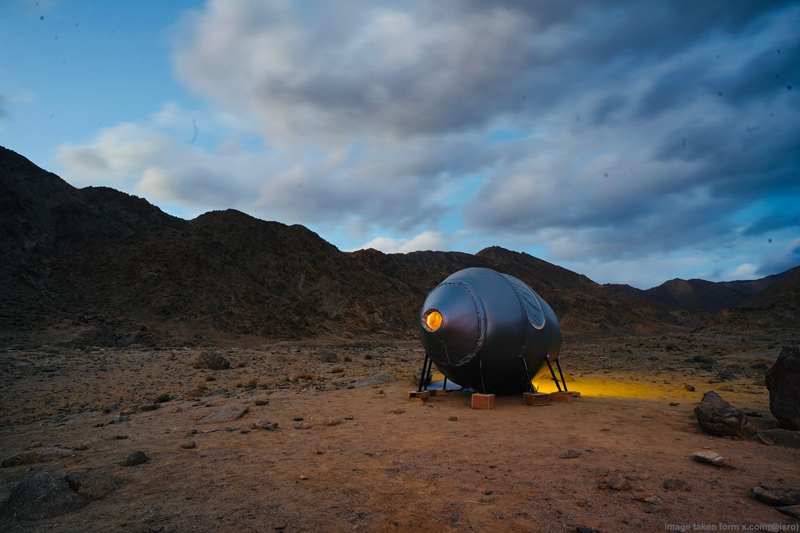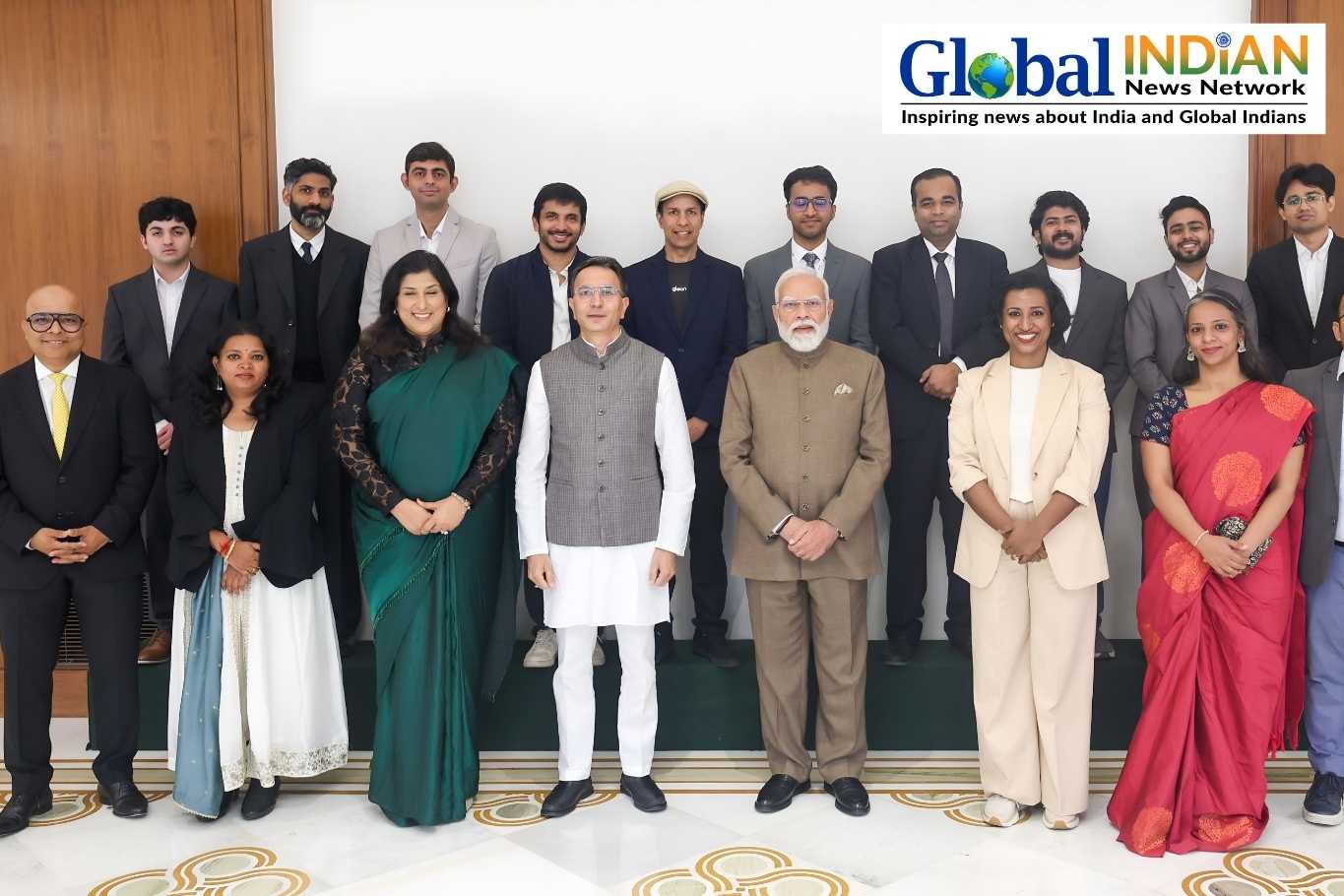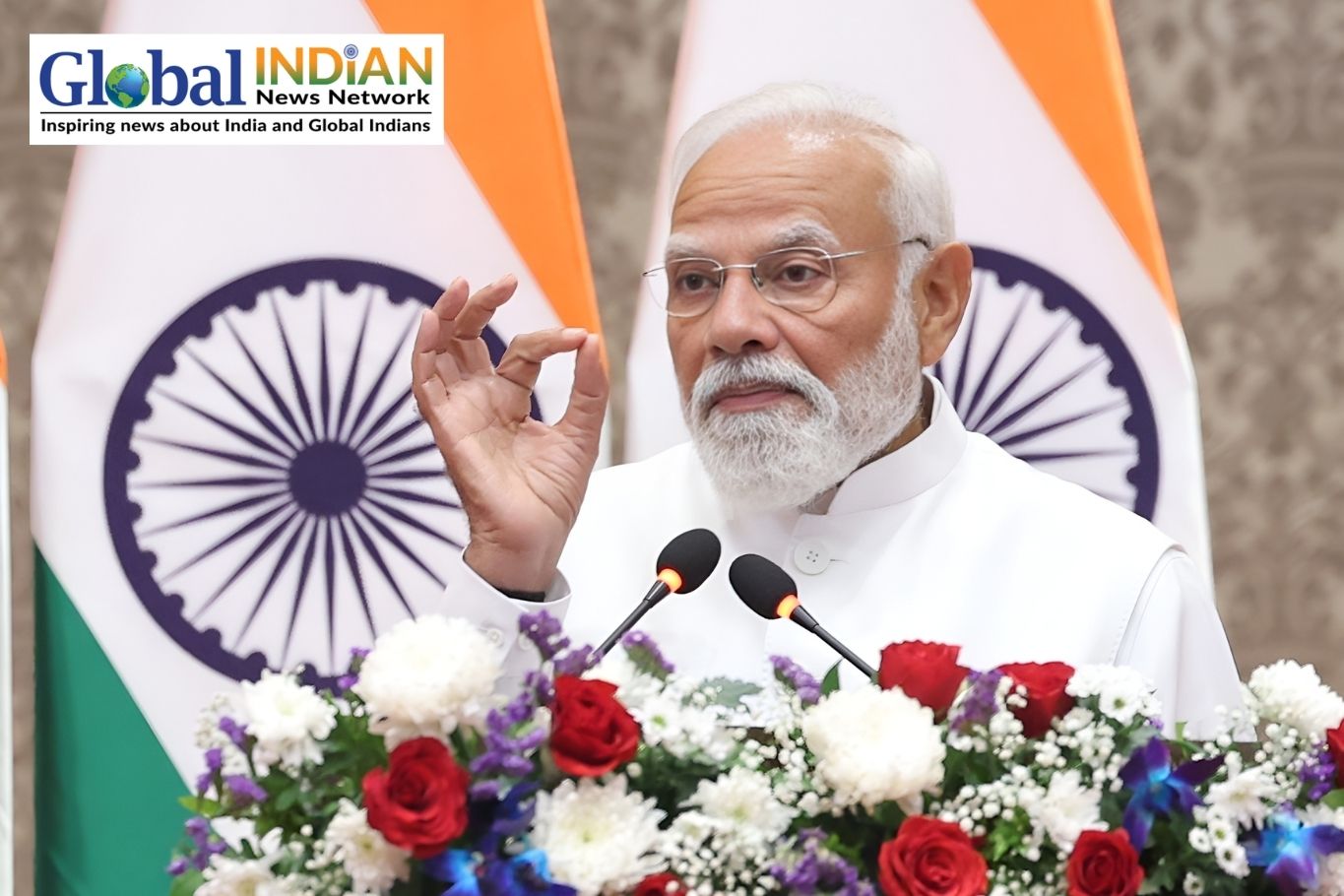 The Indian Space Research Organisation (ISRO) has launched India’s first analog space mission in Leh, Ladakh. In partnership with AAKA Space Studio, the University of Ladakh, IIT Bombay, and with support from the Ladakh Autonomous Hill Development Council, this mission will simulate life in an interplanetary habitat, advancing research for future space bases beyond Earth.
The Indian Space Research Organisation (ISRO) has launched India’s first analog space mission in Leh, Ladakh. In partnership with AAKA Space Studio, the University of Ladakh, IIT Bombay, and with support from the Ladakh Autonomous Hill Development Council, this mission will simulate life in an interplanetary habitat, advancing research for future space bases beyond Earth.
On X, ISRO announced the launch of India’s first analog space mission in Leh. This initiative is a collaborative effort involving the Human Spaceflight Center, ISRO, AAKA Space Studio, the University of Ladakh, IIT Bombay, and is supported by the Ladakh Autonomous Hill Development Council. The mission focuses on replicating life in an interplanetary environment to tackle the challenges linked to setting up a base station outside of Earth.
Ladakh’s rugged, high-altitude terrain provides conditions resembling Mars and the Moon, ideal for analog research. Dr. Aloke Kumar, a noted Indian scientist, had originally proposed Ladakh as a test location for space research. This mission will support India’s Gaganyaan program, collecting essential data for future exploration.
NASA describes analog missions as tests in Earth environments that imitate extreme space conditions, examining human, robotic, and technological responses in preparation for missions to challenging destinations like asteroids or Mars. Test sites include oceans, deserts, and volcanic areas worldwide, where isolation, team dynamics, and other behavioral aspects are closely observed to prepare for space conditions.









